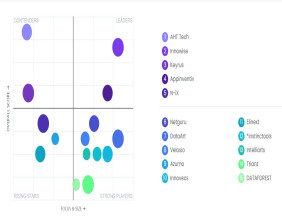Highlights
- Deutsche Bank updates its rate cut forecast for the Reserve Bank of Australia
- Changes influenced by US tariff policy adjustments
- New predictions set the terminal rate timeline into 2026
In a recent turn of events, Deutsche Bank (DBK) has adjusted its forecast for the upcoming monetary policy decisions by the Reserve Bank of Australia (ASX:RBA). Initially, the bank projected a substantial rate cut of 50 basis points in the upcoming month. This prediction was underpinned by the escalating global trade tensions and the anticipation of continued aggressive tariff policies by the United States. However, the scenario has shifted dramatically following a significant policy revision from the US administration.
Just two days prior, analysts at Deutsche Bank expressed a stark viewpoint, suggesting that if the US did not moderate its tariff stance, a hefty rate reduction would be imminent to counter the economic headwinds. This perspective changed quickly as the US President announced a pause on imposing reciprocal tariffs on all countries except for China. This move by the US government has eased some of the financial market pessimism that was previously fueling expectations for more aggressive monetary easing by the RBA.
Responding to these developments, Deutsche Bank has now scaled back its expectations, aligning more closely with its earlier predictions. The forecast now anticipates a more modest 25 basis point cut in May, with similar cuts expected in the successive quarters of August, November, and the following February. These adjustments are projected to bring the terminal rate to 3.1 percent by the first quarter of 2026, a slight delay from the previously anticipated fourth quarter of 2025.
Phil O'Donaghoe, Deutsche Bank's chief economist for Australia, noted the rapid change in financial market sentiments as a key driver for the revised forecast. He highlighted that the reduction in pessimism significantly diminishes the urgency for the RBA to implement a larger-than-expected rate cut. This nuanced understanding of global economic interactions underscores the dynamic nature of financial markets and the importance of responsive monetary policy.
This update from Deutsche Bank not only reflects a keen adaptation to shifting global economic policies but also serves as a reminder of the interconnectedness of global financial systems. Investors and policymakers alike are advised to stay attuned to these developments, which are pivotal in shaping not just national but global economic landscapes.




